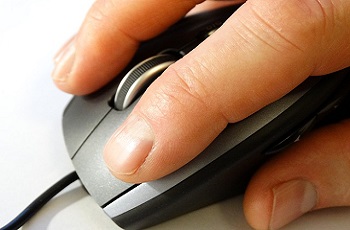Using Digital Tools to Fight Addiction

Technology literally came about to make life much easier.
From social media, to online shopping, communication, virtual reality, and literally anything else you can think of.
It also came to help us with things that sometimes somewhat tend to overpower us, like online counselling and therapy sites. There are so many apps for this, and among them are sites used to treat addictive behavior.
There are many different types for addiction that people struggle with, from gambling, drug abuse, sex, food, or shopping. There are apps, with a team off trained professionals, who will be there to guide you through your journey.
The conventional physical meetings for example Alcoholics Anonymous (AA) might not be the right fit for you, especially for people who are not yet ready to talk publicly about it, or people with busy schedules. Technology, through the online apps, are here to make it a bit easier and more convenient for you.
Applications For Recovering Addicts
One of the apps that has set out to help you on your recovery journey is Alcoholics Anonymous Big Book that can be found on iTunes. It takes one through the steps of recovery. On it, you can find personal stories, podcasts, meeting finders and even prayers. There are chat rooms too, so that users can interact and share their stories with each other, for motivation and support. The app has a 4.8/5.0 rating, ad is highly recommended by a lot of people.
Sober Grid is another free app that uses your location to get you help. It has 24/7 peer recovery coaching, where users support each other. There are also public and private options, and fixtures like a burning desire button.
Squirrel Recovery is an app that also has former addicts support each other by creating support groups follow up on each other , and when someone feels at risk of falling back, they can be there for him/her. You can pick the people you want in your support group, and set time that you feel are most likely to relapse during.
Another app that has proved to be extremely popular is Reset. Created by Pear Therapeutics and approved by the FDA, it is commonly used to treat outpatient substance abuse disorders. It is based on Cognitive Behavioral Therapy (CPT). It examines the links between behavior, feeling and thought, and uses this to focus on treatment.
All these apps for treating addiction are best used together with outpatient therapy, but, if therapy is not convenient, or too expensive for you, the apps have still been proven to be helpful, even though Intrepid.Io does not recommend the use of apps as a substitute.
Virtual Cognitive Behavioral Therapy
Cognitive Behavioral Therapy is a method whereby recovering addicts work hand in hand with counselors to identify thought and behavior patterns that lead to unhealthy and addictive patterns. Patients learn how to deal with their emotions in a reasonable manner instead of falling into addictive behaviors like substance abuse.
It is based on cognitive and behavioral therapy aimed at changing the thinking of a recovering addict positively, to look at the brighter side of life.
Computer based therapy is a web-based program, and studies on CBT show that users remain sober all through the program treatment.
Virtual Eye Movement Desensitization and Reprocessing
This treatment form is founded on the belief that the mind is capable of repairing itself after going through damage or trauma. It uses sights and sounds to identify the parts of a person’s brain cause addictive behavior, the healing process can begin.
It saves one the cost of travelling to treatment centers, and has proven to be just as effective. It is mostly used for substance abuse, and is best for patients whose addiction is caused by a mental conditioning.
Virtual Heroin Dens
The title for this sounds pretty confusing, right? But it is quite the opposite of what you think.
Virtual reality headsets are used to create the illusion of a heroin den, and the aim is to cue something that triggers their addictions, which then urges them fight the desire to use.
Therapists train patients on how to resist triggers and urges, even in the real world.
In Summary:
Fighting addiction is not easy, and even with the use of applications, experts advise for the use of outside systems too, like supportive people, and therapy too.
Anything is possible, and you have the power within you to fight your addiction. You are worth it, always remember that.









